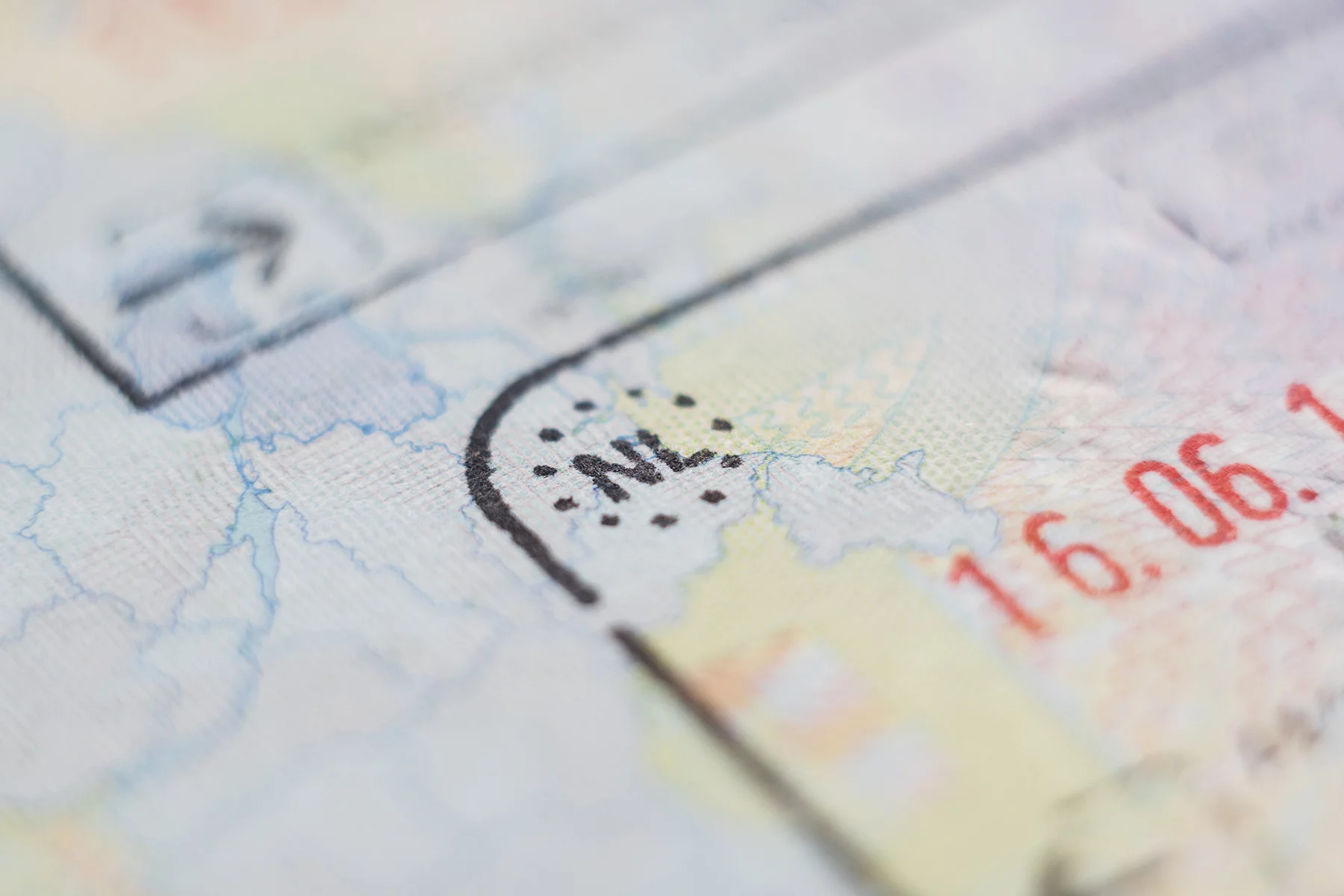The Netherlands is not just a great place to take a holiday, it’s also a good long-term home that famously welcomes expats. It is consistently voted one of the happiest places in the world. Small wonder then that many people from around the world consider relocating here to live, work, and study. But what if you want to retire in the Netherlands?
If you’re thinking of moving to the Netherlands in retirement, here’s some advice on how to do so. Topics covered below include:
- Retiring in the Netherlands
- Who can retire in the Netherlands?
- Pensions in the Netherlands
- Best places for expats to retire in the Netherlands
- Services, organizations, and clubs for retired expats in the Netherlands
- Wills and inheritance in the Netherlands
- Healthcare for pensioners in the Netherlands
- Useful resources
SJB Global
Let SJB Global guide you on a range of topics including saving plans, retirement and pensions transfers, investments, and more. This financial adviser provides a remote service, so you can contact their experts at a time that suits you. Get in touch with SJB Global to find out how they could help you in your life abroad.
Retiring in the Netherlands
Of course, the Netherlands is not the most obvious pick for expats to retire in Europe. That distinction belongs to sunnier neighbors Spain, Portugal, and France. However, the Netherlands does boast a high standard of living and a quality healthcare system. These factors alone make it worth considering if you are thinking of settling abroad.

In fact, the Netherlands fared very well in the 2020 OECD Better Life Index. Achieving a table-topping score for work/life balance while also boasting above-average ratings for housing, wellbeing, and health status.
The country also scored highly in the 2021 Natixis Global Retirement Index. It took 5th place for the second year in a row, after all, having risen from 10th in 2019. However, while the country ranked third for mental wellbeing it only achieved a middling ranking of 28th for finances.
Who can retire in the Netherlands?
If you’re a national of a European Union (EU), or European Free Trade Association (EFTA) member state, you won’t need a provisional residence permit (machtiging tot voorlopig verblijf – MVV) or visa to enter the Netherlands. However, you do need to register with your local council. Your details will be recorded on the Municipal Personal Records Database (BRP).
To live in the Netherlands, you’ll need:
- A valid passport
- Proof of health insurance
- Sufficient funds
These funds can come from any source, including pensions, inheritance, or assets. Overall, your income must be equal to, or higher than, the Dutch minimum wage. As of January 2022, the Dutch minimum wage is €1,725 per month. However, if your income is below this level, you’ll need to provide evidence that you’ll have enough cash to live on. You’ll also need to sign a declaration confirming you’ll be ‘economically inactive’ since you won’t be conducting paid work in the Netherlands.

Nationals of some countries do not need an MVV to travel to the Netherlands, but they do require a residence permit if they want to stay for longer than 90 days. These are Andorra, Australia, Canada, Japan, New Zealand, San Marino, South Korea, United Kingdom, United States, and Vatican City.
If you’re from a different country, you may need both an MVV and a residence permit.
No fast-track visa to retire in the Netherlands
The Dutch immigration service requires you to state your reason for wanting to move to the Netherlands as part of your application. However, retiring isn’t one of the options given. This means you may need to take advice from the Dutch consulate in your home country to find out the specific rules before moving. Having said that, the general visa rules are likely going to apply to you if you are from a non-EU/EFTA country. This means you will need to apply for a visa and residence permit before moving to the Netherlands.
You need to have lived and worked in the Netherlands for five years before you can gain permanent residency. This goes for both EU/EFTA and third-country citizens. There are also exceptions to this. EU/EFTA citizens can apply for permanent residency if they have retired after living in the country for three years. Permanent residency affords you nearly the same rights as a Dutch citizen. While you won’t be able to vote in national elections you will be able to access state benefits and live in the country indefinitely. As such, permanent residency is worth working towards if you plan to retire in the Netherlands.
Retirement age in the Netherlands
In 2022, the statutory retirement age in the Netherlands is 66 years and 7 months. In 2023, it rises to 66 years and 10 months. And in 2024 it will reach 67 years. After this, the statutory retirement age will only increase if life expectancy continues to rise.
Pensions in the Netherlands
The Dutch pension system ranked second in the world in Mercer’s 2021 Global Pension Index. The system has three pillars: the state pension, workplace pensions, and private pensions.
The state pension is commonly referred to as the AOW (Algemene Ouderdomswet). Dutch workers make contributions towards their state pension during their careers. Each year of work is worth 2%, so to gain the full pension (100%), you’ll need to make 50 years’ worth of contributions. If you don’t qualify for the full pension, your amount will be calculated based on the number of years you’ve paid in.

Occupational pensions are very common in the Netherlands, with around 90% of employers offering pension schemes. External pension providers usually operate these schemes. Some occupations, such as government workers and teachers, must pay into mandatory schemes.
Of course, you can also top up your pension by paying into a private pension fund. Banks and insurance companies usually offer these products. This is useful for self-employed workers and people who work in sectors that don’t offer occupational schemes.
Transferring a pension to the Netherlands
You may be able to take your overseas pension with you if you plan to retire in the Netherlands. This depends on whether your home country has a bilateral agreement in place with the Netherlands. Bilateral agreements enable you to transfer your pension funds without being taxed twice
EU/EEA and Swiss nationals can make use of a bloc-wide agreement, while various other countries including the United States, South Africa, Australia, and New Zealand have agreements in place with the Netherlands. British expats may be able to use a Qualifying Recognised Overseas Pension Scheme (QROPS) to consolidate their retirement funds.
Taxes on retirement in the Netherlands
When you live in the Netherlands, you are considered a resident for tax purposes. This means that you pay Dutch taxes on any income you make worldwide.
Firstly, keep in mind that your pension income is taxable alongside earnings from employment (in the ‘Box 1’ category of your income tax form). This means that you pay a 37.07% tax rate on income of up to €69,938 a year. Secondly, any income you have above this attracts tax at a rate of 49.5%.
Lastly, your income from savings and investments is tax-free up to €50,000. If you get more than this from savings and investments you pay tax at a flat rate of 31%.
Best places for expats to retire in the Netherlands
The best place to retire to in the Netherlands depends on the kind of lifestyle you’re looking for. Of course, affordability is key too. The good news is that there is a range of options available. Bestretirementcities.org picked out Utrecht, Amsterdam, The Hague, Eindhoven, and Rotterdam as its top five cities to call home if you retire in the Netherlands. InsiderMonkey.com’s top five features Nijmegen, Zwolle, Utrecht, Haarlem, and Eindhoven.

Our comprehensive guides on where to live in the Netherlands can help you get the lowdown on different towns and cities:
- Amsterdam and surrounding towns
- Amstelveen
- Delft
- Eindhoven
- Groningen
- Haarlem
- The Hague
- Leiden
- Leeuwarden
- Maastricht
- Northern Netherlands
- Rotterdam
- Utrecht
House prices have soared
If you’re planning to buy a home in the Netherlands, brace yourself: house prices increased by a record 21.1% in the year to January 2022. The COVID-19 pandemic has caused demand to soar in the country, which already faces a shortage of affordable housing. As a result, house prices are growing at rates not seen before.
Dutch bank ABN Amro estimates that the Netherlands had a housing shortfall of 280,000 homes in 2020. However, the country plans to build 100,000 new homes a year. This is to keep pace with projections that one million new homes are going to be needed in the next decade. Even so, the number of property transfers recorded in January 2022 came in at 43% less than the year before. In short, the Netherlands property market is about tight supply and high prices.
Services, organizations, and clubs for retired expats in the Netherlands
Joining a local club or expat group can be a great way of settling into life in the Netherlands. The good news is that there are lots of options available for English-speaking expats.
As a starting point, you can check out our directory of expat groups and clubs in the Netherlands. You can also explore local groups on Facebook or Meetup.
Wills and inheritance in the Netherlands
It’s important to get your head around how tax rules in the Netherlands differ compared to your homeland.
If you die in the Netherlands without leaving a will, your estate will be divided according to Dutch law, which states that estates are distributed equally between your spouse/partner and any children.

You can change this outcome by writing a will. An EU agreement means nationals from most countries can choose whether the laws of their home country or their country of residence will apply when they die. Ultimately, this means if you want your estate to be distributed according to the rules of your homeland, you’ll need to write a will and state this.
Taxes on inheritance
Inheritance tax in the Netherlands is payable on the net value of the estate. There are also tax-free thresholds for various categories of inheritors. For example:
- Spouses, registered or cohabiting partners have a tax-free threshold of up to €680,645.
- Children, including foster and stepchildren, have a threshold of €21,559.
On amounts above these thresholds, spouses and children pay a tax rate of between 10% and 20%, depending on the sum involved. Grandchildren pay higher rates of 18% and 36%, while any other heirs pay between 30% and 40%.
Thankfully there are a number of expat-friendly tax advisors in the Netherlands. They can help with issues related to inheritance tax, offering advice and information in English or other languages. Expat-friendly tax advisors in the Netherlands include:
Healthcare for pensioners in the Netherlands
The Dutch public healthcare system is one of the best in Europe. By law, all Dutch residents must have basic health insurance (zorgverzekeringswet – ZVW), and expats retiring to the Netherlands are no exception.
Some medical care is provided for free (for example GP appointments) but the premium for the public healthcare system is around €100 per month. Then there’s an annual excess that you’ll need to pay when claiming on your insurance policy. The law (Wet langdurige zorg) provides automatic insurance for long-term nursing and care for Dutch residents.
You are free to select the health insurance provider of your choice. Basic public health insurance does not cover dental care and other specialist treatments. As a result, many expats opt for comprehensive private health insurance. Comparison sites like Independer and consumer collective United Consumers can help you find offers. You may also find it easier to opt for a company that offers information in English. Some notable expat-friendly health insurance providers include:
Pensioners from the EU or the United Kingdom may be covered by the healthcare system in their home country if they obtain an S1 form – check with the consulate in your home country. If you’re retiring to the Netherlands from outside of the EU, you’ll need to take out a healthcare plan if you wish to stay in the Netherlands for more than 90 days.
Useful resources
- Immigratie- en Naturalisatiedienst – for updates on visas and permits
- Social Verzekeringsbank (SVB) – runs the Dutch the pension system
- OECD Better Life Index – Netherlands – keep track of key indicators








